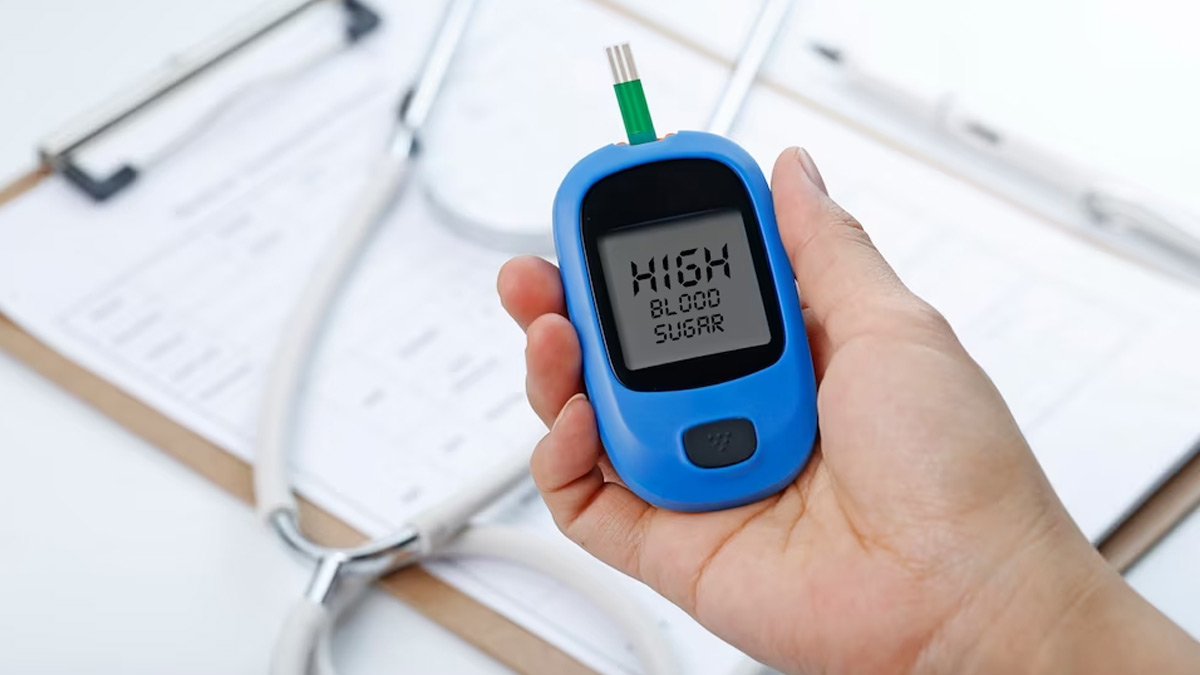
According to the World Health Organization (WHO), about 77 million Indians above 18 suffer from type 2 diabetes and nearly 25 million people have borderline diabetes. While diabetes is a common health issue that often stays in the news, borderline diabetes is less talked about. In this article, Dr Arun Mukka, Consultant Endocrinologist, Yashoda Hospitals, Hyderabad, explains this condition in detail.
Table of Content:-
What is Borderline Diabetes?
Another name for borderline diabetes is prediabetes. This is called so because prediabetic people are on the verge of developing diabetes. Dr Mukka said, "In borderline diabetes, your body has difficulty maintaining normal blood sugar levels and is often a prelude to type 2 diabetes. This is a serious health issue because it often goes unnoticed until the classic signs of diabetes start to appear.”
Recognising The Borderline Diabetes Stage

According to the expert, there is no clear symptom of borderline diabetes but some may develop a disease known as acanthosis nigricans which is a symptom of insulin resistance. The disease is characterised by the growth of black and thick patches of skin around the armpits, elbows, knees, knuckles, and neck.
Dr Mukka said, "Borderline diabetes people may also experience changes in their eye, where they run the risk of developing diabetes-related retinopathy."
Also Read: Type 2 Diabetes Mellitus: Things You Should Know About Insulin
Who Is At Risk For Borderline Diabetes?

Due to the silent nature of borderline diabetes, Dr Mukka advised getting your blood sugar levels checked if you are obese, have a family history of type 2 diabetes, lead a sedentary lifestyle, have gestational diabetes (diabetes during pregnancy), and Polycystic Ovarian Syndrome (PCOS). Apart from this, if you are above 45 years of age, then you should also get your blood sugar levels checked.
If you have any of these risk factors, the expert advised repeating screening tests every one to three years.
When To Consult A Doctor?
If you are diagnosed with borderline diabetes, you should consult a doctor if you are experiencing increased thirst and frequent urination, especially at night. To these symptoms, Dr Mukka added that you should consult your doctor if you are increasingly tired, have blurred vision, and when your sores or cuts do not heal.

Dr Mukka said, "Based on your symptoms and subsequent blood tests, your doctor will be able to identify whether your blood sugar levels are under control or have progressed to type 2 diabetes mellitus."
Also Read: 6 Natural Ways To Improve Insulin Sensitivity
Managing Borderline Diabetes
Dr Mukka said, "Borderline diabetes is reversible when effective steps to control rising blood sugar levels are taken."
You can manage this condition by making healthy lifestyle changes, such as reducing your weight, exercising regularly, quitting smoking and alcohol, and managing sleep issues, high blood pressure, and high cholesterol levels. Depending on your health status, your doctor may suggest oral medication in addition to these lifestyle changes.
Dr Mukka said, "A healthy lifestyle can slow and avoid diabetes-related problems, such as heart disease and kidney disease, in people who already suffer from diabetes." The amount to which the effect is noticed, however, is typically determined by the lifestyle modifications undertaken and how early they are implemented, he added.
[Disclaimer: The information in this article is provided by a registered medical practitioner. However, we recommend you consult your healthcare provider for accurate diagnosis and treatment.]
Also watch this video
How we keep this article up to date:
We work with experts and keep a close eye on the latest in health and wellness. Whenever there is a new research or helpful information, we update our articles with accurate and useful advice.
Current Version